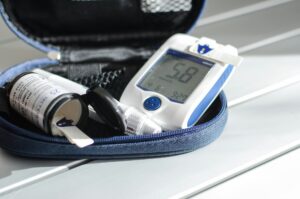Managing diabetes effectively is crucial for maintaining one’s health, enhancing quality of life, and avoiding complications. Fortunately, with the advent of technology, there’s a multitude of mobile apps designed specifically to assist individuals in diabetes management. From tracking blood sugar levels to monitoring dietary intake and physical activity, these apps can be powerful tools in one’s diabetes management arsenal. This blog post will delve into how to use mobile apps for better diabetes management, offering insights into choosing the right apps, their benefits, and tips for maximizing their utility.
Understanding Diabetes Management
Before diving into the specifics of mobile apps, it’s important to understand what diabetes management entails. Diabetes is a chronic condition characterized by elevated blood sugar levels. Successful management typically involves a combination of lifestyle changes and medical interventions:
- Monitoring Blood Sugar Levels: Keeping track of blood glucose levels is essential to avoid hyperglycemia (high blood sugar) or hypoglycemia (low blood sugar).
- Diet and Nutrition: Consuming a balanced diet is crucial. Individuals with diabetes need to monitor carbohydrate intake and choose foods with a low glycemic index.
- Physical Activity: Regular exercise helps manage blood sugar levels and contributes to overall health.
- Medication: Many individuals require medication or insulin therapy to manage their condition.
- Education and Awareness: Staying informed about diabetes and its management helps individuals make better health decisions.
The Role of Mobile Apps in Diabetes Management
Mobile apps cater to various aspects of diabetes management. Here’s how they can assist:
Blood Sugar Tracking
One of the core functions of diabetes management apps is tracking blood glucose levels. These apps often allow users to input their blood sugar readings manually or sync with glucometers. Key features in these apps include:
- Graphs and charts to visualize trends.
- Reminders to check blood sugar at specific times.
- Data export options to share with healthcare providers.
Examples: MySugr, Glucose Buddy, OneTouch Reveal.
Diet and Nutritional Monitoring
Managing diet is a cornerstone of diabetes management. Apps focused on nutrition help users track their food intake and make healthier choices. These features often include:
- Food diaries for logging meals and snacks.
- Carbohydrate and calorie counting.
- Information on food’s glycemic index.
Examples: MyFitnessPal, Carb Manager, Nutritionist: Food Tracker.
Exercise and Physical Activity Tracking
Physical activity is vital for managing diabetes. Apps for exercise and fitness assist users in:
- Tracking workouts and everyday activities.
- Setting and achieving fitness goals.
- Monitoring calories burned and overall activity levels.
Examples: Fitbit, Google Fit, MyFitnessPal.
Medication Management
Taking medications as prescribed is critical in diabetes management. Apps can help with:
- Medication reminders to avoid missed doses.
- Tracking prescriptions and refill dates.
- Logging medication consumption and any side effects.
Examples: Medisafe, MyMeds, CareZone.
Choosing the Right App
With a plethora of apps available, selecting the right one can be overwhelming. Consider the following factors:
Personal Needs and Goals
Identify which aspects of diabetes management require the most support. Whether it’s blood sugar tracking, diet monitoring, or medication management, choose an app that aligns with your specific needs.
User Interface and Usability
An intuitive interface makes using the app more enjoyable and less time-consuming. Look for apps that are easy to navigate and offer quick access to key features.
Compatibility and Integration
Ensure the app is compatible with your mobile device and any other health devices you use (like glucometers or fitness trackers). Integration with other health apps can also provide a more comprehensive view of your health data.
Reviews and Ratings
Check user reviews and ratings in app stores. These can provide insights into the app’s reliability, functionality, and user satisfaction.
Data Privacy and Security
Since the app will be handling sensitive health information, make sure it has solid privacy and security measures in place.
Maximizing the Benefits of Diabetes Management Apps
To truly benefit from these apps, consider the following tips:
Regular Logging
Consistency is key. Regularly log your data to identify patterns and trends. This helps in making informed decisions and adjustments to your management plan.
Set Reminders
Use the app’s reminder features for checking blood sugar, taking medications, or logging meals. This reduces the risk of forgetfulness and ensures timely management.
Review Data Regularly
Periodically review the data collected by the app. Look for trends in blood sugar levels, dietary intake, and physical activity. Share this data with your healthcare provider for better-informed consultations.
Stay Educated
Many apps offer educational resources about diabetes management. Utilize these to stay informed about new best practices and tools available.
Engage with Community Features
Some apps offer community support and forums. Engaging with others facing similar challenges can provide motivation, support, and useful tips.
Conclusion
Mobile apps can be invaluable tools for managing diabetes effectively. They offer a range of features to assist with blood sugar monitoring, dietary management, physical activity tracking, and medication management. Select an app that aligns with your specific needs and preferences, and use it consistently to maximize its benefits. Remember, while these apps can significantly aid in managing diabetes, they are a supplement to professional medical advice and should be used in conjunction with consultations from your healthcare provider.
By leveraging technology, you can take a more proactive role in your diabetes management, ultimately leading to better health outcomes and an improved quality of life.




